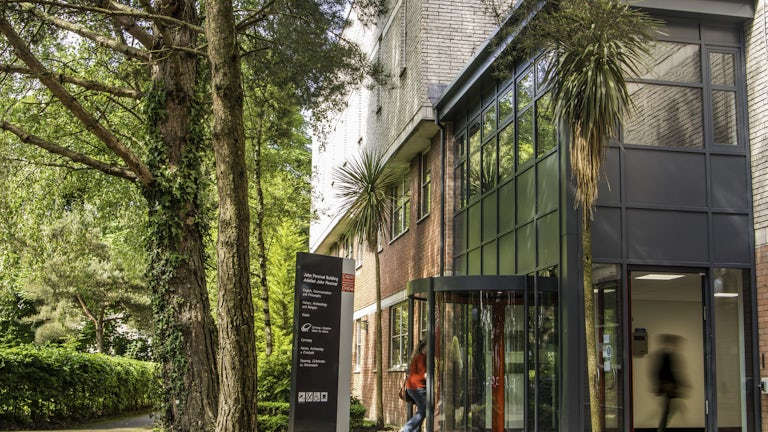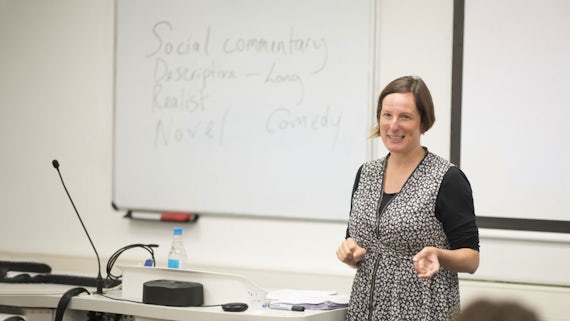
English language and linguistics
Explore and research the form, function and effect of human communication and language.
Why study with us
Study linguistics and communication at an advanced level while also gaining valuable transferable skills such as high-level critical thinking, analysis and problem solving, together with independent research skills.
Research with impact
Placed 4th in the UK for research impact and 5th for research power in English Language and Literature (REF 2021).
Top 100 worldwide
Globally, we’re positioned in the top 100 universities for the study of English Language and Literature (QS World University Rankings by Subject 2025).
Employability
93% of our postgraduate taught graduates were in employment and/or further study, due to start a new job or course, or doing other activities such as travelling, 15 months after the end of their course. (Graduate Outcomes survey 2020/21)
Courses
Our talks and videos
I thoroughly enjoyed taking the MA in Language and Communication Research, due to its extensive focus on both quantitative and qualitative research design, and also the flexibility it allowed when choosing a topic for my dissertation. I was able to explore topics of particular interest to me, while also learning highly valuable research skills. I believe that through acquiring the knowledge and skills taught within the MA, I was afforded a concrete foundation from which to smoothly transition to doctoral research.
Learn more about us

Centrally located
Study in the heart of our leafy city centre campus at the John Percival Building, with easy access to the University’s magnificent Special Collections and Archives in the adjacent Arts and Social Sciences Library.
Explore Cardiff University
Next steps
View our English language and linguistics postgraduate taught courses
Explore our courses.
View our English language and linguistics postgraduate research course
Explore our courses.
Contact us
Ask a question via our enquiry form, and we'll get back to you as soon as possible.
How to apply
Everything you need to know about our application process.
Other subjects you might be interested in
Source: Contains HESA Data: Copyright Jisc 2023. Jisc cannot accept responsibility for any inferences or conclusions derived by third parties from its data.














